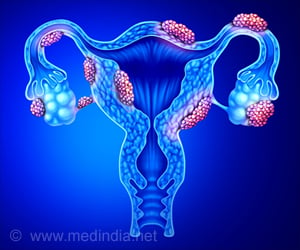New research by UT Southwestern Medical Center physicians suggests that conservative treatment can deal with breast infections cause by the superbug methicillin-resistant Staphylococcus
Conservative treatment can deal with breast infections cause by the "superbug" methicillin-resistant Staphylococcus aureus (MRSA) in nursing mothers, a new study by UT Southwestern Medical Center has indicated.
The researchers have revealed that their study focused on hospitalised women with mastitis.They say that MRSA was much more likely to be found in those who had both mastitis and abscesses, pockets of infection.
"The take-home message is that a patient with mastitis does not necessarily need an antibiotic against MRSA," said Dr. George Wendel, professor of obstetrics and gynecology and senior author of the study, which appears in the September issue of the journal Obstetrics and Gynecology.
"She will improve with a less specific antibiotic as long as she also empties her breasts, either through feeding or pumping, and if there's an abscess, gets it treated," he added.
The researchers say that their findings indicate that a nursing mother having an abscess does not immediately need antibiotics against MRSA, but can be switched to them if tests reveal she has MRSA.
Describing their study, the researchers said that they designed it to see which antibiotic treatment could be the best for severe cases of mastitis, which can be caused by clogged milk ducts with or without infection, and breast abscesses, which are caused by bacterial infections, generally by aureus, one strain of which is MRSA.
Advertisement
"The physician can take the time to test the patient to determine what kind of bacteria she has. We found that you're not going to put the patient at a disadvantage if you start her on antibiotics while you wait for culture results, then switch her to more powerful medication if she has MRSA," said the researcher.
Advertisement
The researchers found that about 59 per cent of the women with both mastitis and abscesses had MRSA, while only two per cent of women with mastitis alone had MRSA.
Though MRSA is resistant to many antibiotics, the researchers found that even in cases when the exact cause of the mastitis or abscess had not yet been determined, and the women initially received antibiotics that did not affect MRSA, all eventually recovered completely.
During the study, when tests showed that a woman had MRSA, she was switched to vancomycin, an antibiotic effective against it.
About two to ten per cent of all nursing mothers developed some sort of breast inflammation such as mastitis, the researchers said.
In their study report, the researchers have revealed that the symptoms of mastitis include unexplained fever and deep soreness or swelling in one breast but not the other.
They have also revealed that an abscess is caused by a localized infection, which causes pain in a specific area that can feel hot to the touch and appear red on the skin.
"Women should seek medical care if they have any symptoms or concerns for breast infections," said Dr. Irene Stafford, resident in obstetrics and gynecology and lead author of the study.
The study appears in the journal Obstetrics and Gynecology.
Source-ANI
RAS/L













